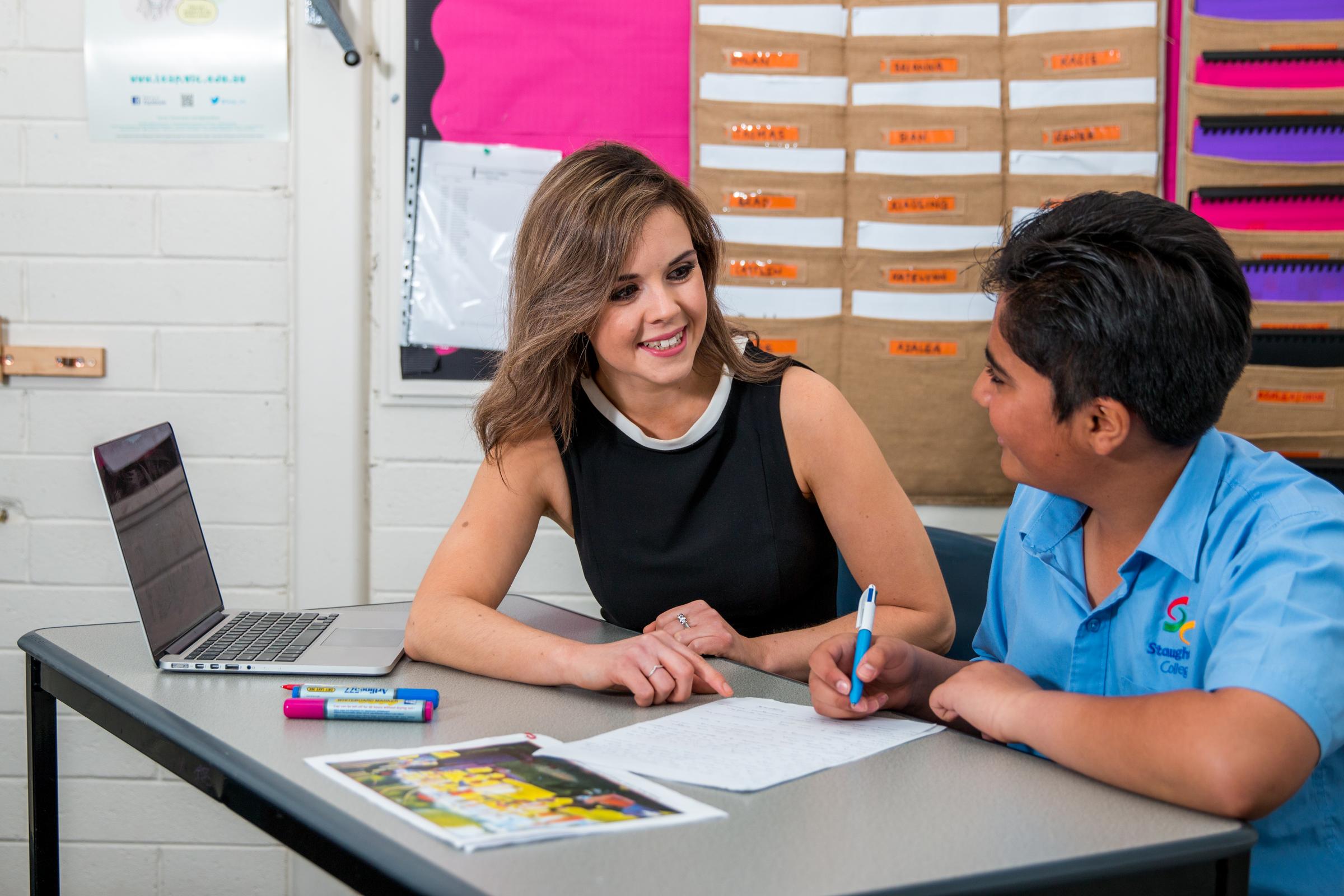How can parents support their student with homework?
The primary purpose of homework is to reinforce the information and skills your child learns at school. It is helpful for your child when parents can help them develop strategies to complete homework and assignments in stress-free and learning-friendly ways. It is important that parents and students find a plan that works for their family and stick with it.
Here are some tips to use when developing homework strategies with your child:
- Use checklists – Help your child get into the habit of using checklists for keeping track of their homework or assessment tasks. This can be done in the Staughton student diary. Once tasks have been completed, crossing off items will help students feel a sense of accomplishment. Some students prefer using a calendar or a mobile device to keep track of due dates and help prioritise assignments.
- Prioritise homework and assessment tasks – Before beginning a homework session, encourage your child to number the tasks in order in which they are to be to be completed. Some students prefer to start with one that’s not too long or difficult. Others prefer saving the easy ones for last and starting on the longest or hardest tasks. Be sure to set realistic goals and stop along the way to check progress.
- Set a designated study space – Students often find it helpful to study in the same place every night where supplies and materials are close at hand. This space does not have to be a bedroom, but it should be a quiet, well-lit place with few distractions. Make sure that the TV is turned off and that if music is requested, it does not create a distraction.
- Set a designated study time – Students should know that a certain time every day is reserved for studying and doing homework. The best time is usually not right after school as most students benefit from time to unwind first. Parents should include their child in making this decision. Even if your child does not have homework, the reserved time should be used to review the day’s lessons, read for pleasure or work on an upcoming school project.
- Show interest in your student’s assignments – Ask about the subject and work to be accomplished. Try to relate homework to your child’s everyday life. For instance, fractions and measurements can be reviewed as your child helps cook dinner ask your child to spell a word in a game of Hangman!
- Be a role model – take the opportunity to read a book or newspaper while your child studies. Reading together helps encourage a life-long love of learning for your child.
- Check over homework assignments – take time to review your child’s homework with them, but make sure you are not doing it for them. Being familiar with your child’s work will help you identify strengths and weaknesses and create a supportive relationship with your child.
- Meet with your student’s teachers – Be sure you understand the goals that the teachers have set for your child. You should consider yourself and your child’s teachers as partners. Together, you and the teacher can have the strongest positive influence on your child and their study habits.
- Take your child’s struggles seriously – if you notice that your child is struggling with assignments in particular subjects be sure that you encourage your child to seek assistance and feedback from their teacher. You can also discuss this with the teacher. Early help is much better than falling behind or becoming very stressed about studying.
- Give praise – Encourage and celebrate with your child for successfully completing homework. Most students want their parents to know they are completing homework and assignments and be proud of their achievements. Nothing builds self-esteem more like praise from parents.
- Use Homework Club, WAR and Junior Tutoring – if your child falls behind or is absent from school, encourage and allow them to attend Homework Club, WAR or Junior Tutoring to receive support to catch up. Teachers are there to supervise this club from Monday-Thursday after school and can give that extra support your student may need.
